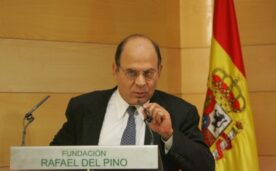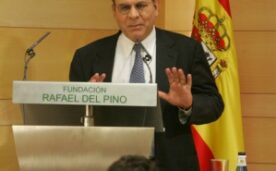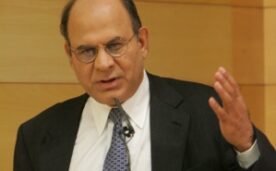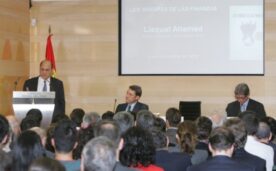The Rafael del Pino Foundation, in collaboration with Ediciones Deusto, hosted the Master Lecture by Liaquat Ahamed entitled "The Lords of Finance" on 4 November 2010.
Liaquat Ahamed stated that: "A speculative bubble occurs when there is a massive purchase of assets in the expectation that their price will rise, which will allow them to be sold in the future for large capital gains. In other words, bubbles are basically fuelled by two factors: greed and expectations. Speculative bubbles are always bad, but if they are driven by credit, when they are fuelled by borrowed money, their effects are much worse. The best example of this is what happened in the year 2000, when the so-called "new economy" stocks collapsed on the stock markets after the sustained rises of the previous 18 months. It is true that many people lost money, but this bubble and its bursting did not endanger the foundations of the international financial system. The problem with the bubbles of the 1920s and the one that burst in recent years lies in the fact that they were fuelled by borrowed money, which amplifies their effects in a devastating way.
Liaquat Ahamed was awarded the Pulitzer Prize for History for this work. In "The Lords of Finance", Liaquat Ahamed recounts the political economy of the First World War and the Great Depression. With obvious parallels to the current crisis, he recounts the relationships between the heads of the central banks of the developed countries: Montagu Norman of the Bank of England, Émile Moreau of the Bank of France, Hjalmar Schacht of the Reichsbank, and Benjamin Strong of the US Federal Reserve. Four characters whose stubborn struggle to control inflation brought the world to the abyss. This book received numerous awards in 2010.







